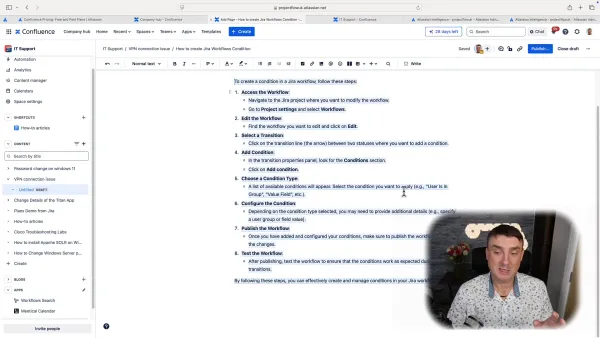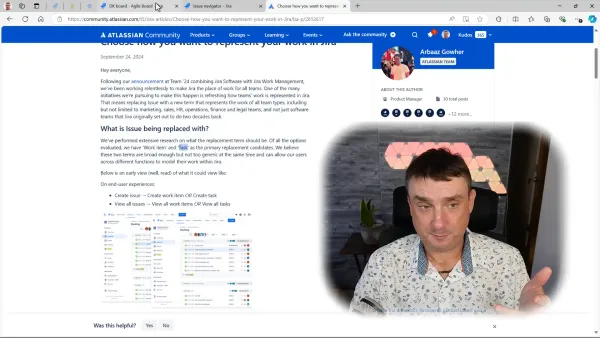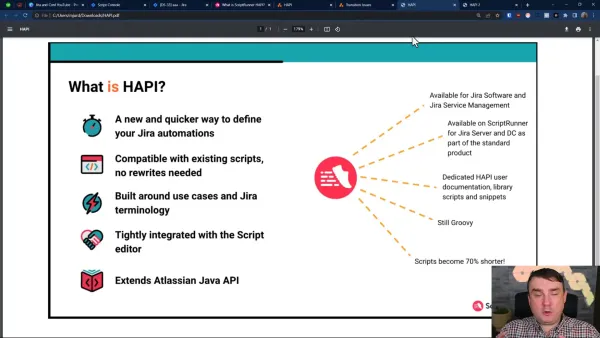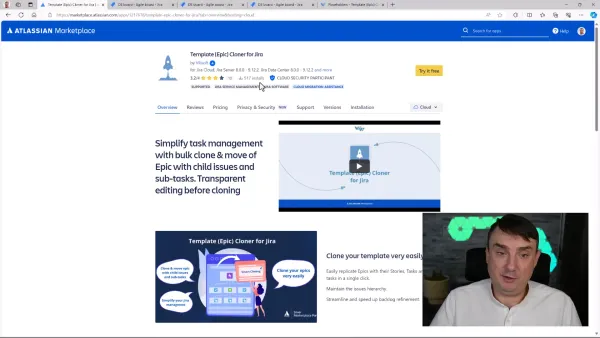Team-Managed vs Company-Managed Projects in Jira: Making the Right Choice
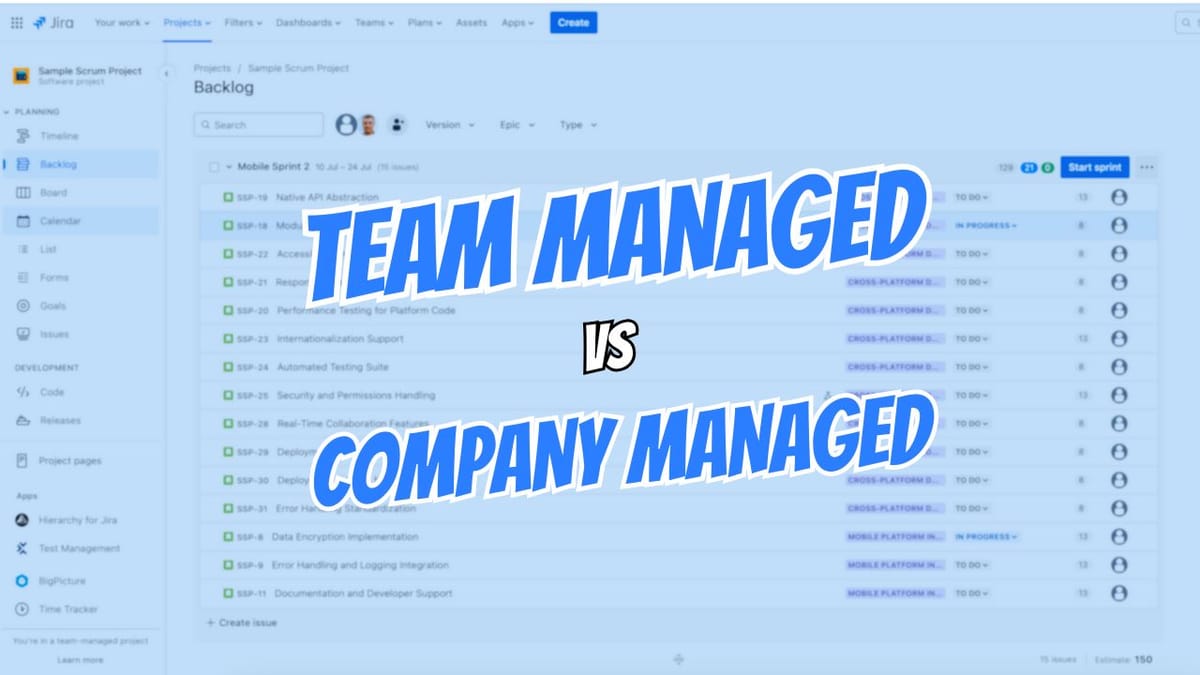
As an Atlassian expert with over 12+ years of extensive experience, I've seen organizations need help choosing between team-managed and company-managed projects in Jira. Recently, a client conversation highlighted just how crucial this decision can be. Let's explore this essential subject so you will learn everything you need about these project types and when to use each one.
The Key Differences at a Glance
Team-managed projects are essentially simplified versions of company-managed projects, but not only that. While this simplification can be a significant advantage, it's important to understand that "simpler" doesn't always mean "better." The devil's in the details - particularly regarding custom fields, permissions and multi-board setup. Also, please remember that TM Proejcts are not supporting initiatives; however, they can be added to Plans if you have a Jira Premium
When to Choose Team-Managed Projects
Team-managed projects shine in several scenarios:
- When you have Jira-savvy project administrators
- For smaller teams that need quick setup and configuration
- When you want to empower teams to manage their own custom fields and issue types
- If you need to avoid lengthy wait times for administrative changes
The biggest advantage? Project administrators can create and manage custom fields without needing system administrator permissions. This autonomy can significantly speed up project customization and workflow adjustments.
When to Avoid Team-Managed Projects
However, there are situations where team-managed projects might not be the best choice:
1. Multi-Board Requirements
If your project needs to:
- Share boards across multiple teams
- Create multiple board views for different departments (HR, Finance, Development)
- Split views for different development teams
Team-managed projects won't support these requirements.
2. Advanced Feature Requirements
Team-managed projects currently don't support:
- Components
- Some advanced board configurations
- Initiatives (in the traditional hierarchy sense)
3. Share configuration with Other Projects
Team-managed projects can't share common elements in Jira, including
- Workflows
- Screens
- Custom Fields
- and, of course, Permissions, which, in many scenarios, it's a good thing.
4. Premium Features Integration
If you're using Jira Premium and need features like initiatives above epics in your hierarchy, team-managed projects might limit your capabilities. While initiatives can be created, they're treated as standard tasks rather than hierarchical elements.
The Migration Consideration
One crucial factor to consider is migration. There's no simple "switch" button to convert between project types. If you need to change from team-managed to company-managed:
- You'll need to create a new project
- Manually move all tickets
- Accept that historical data (creation dates, update dates, resolution dates) will be reset
- Deal with potential custom field compatibility issues
Pro Tip: Identifying Project Types
Not sure which type you're using? Here's a quick way to check: scroll to the bottom left corner of your project. Team-managed projects are clearly labelled as such.
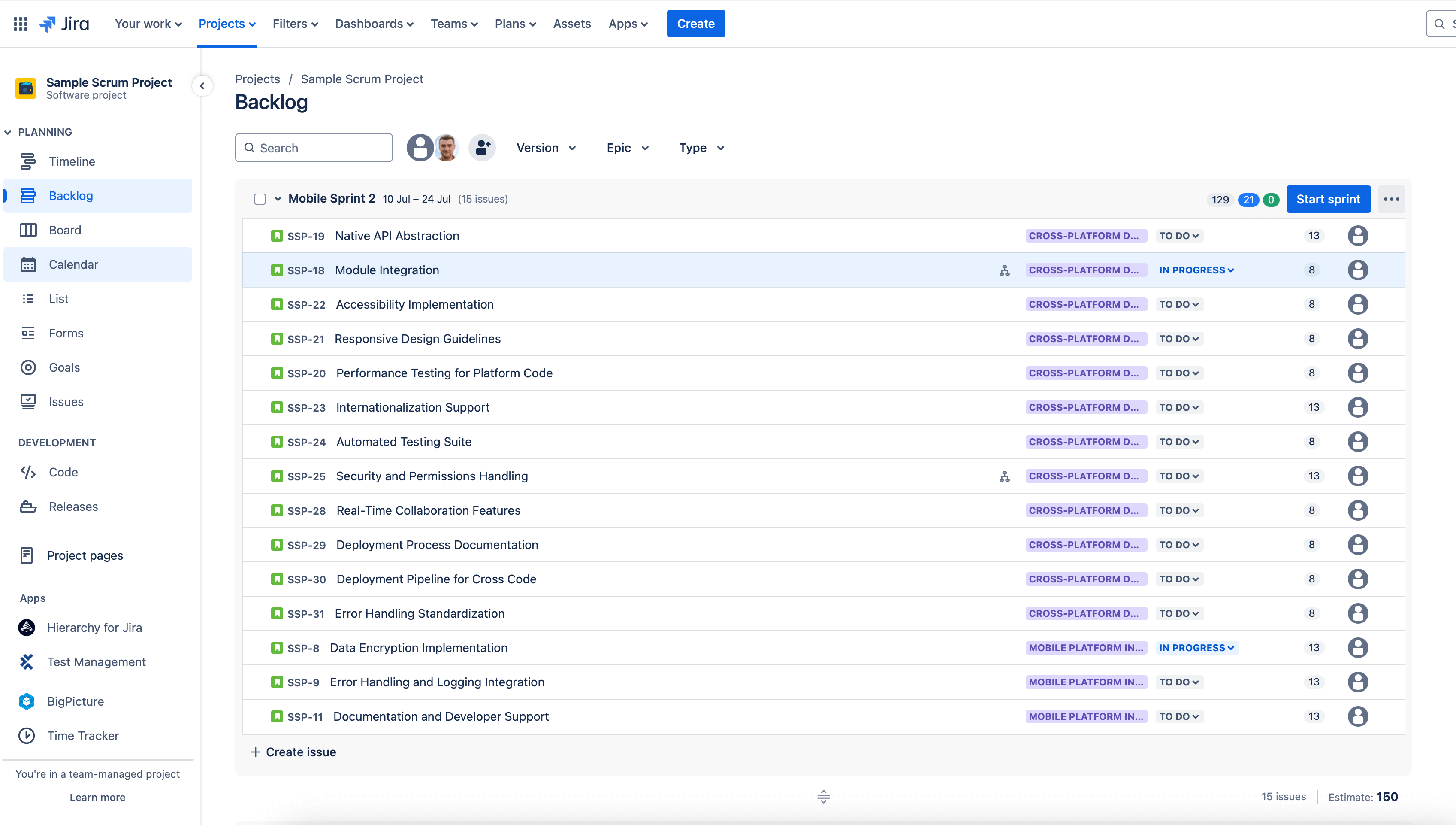
Real-World Example
Let me share a recent client scenario: They had been using team-managed projects for a few weeks when they realized they needed more sophisticated board-sharing capabilities. The migration wasn't too painful because it was early in their implementation, with few tickets and minimal customization. However, this exact scenario with a mature project could have been significantly more challenging.
Making Your Decision
Consider these factors when choosing:
- The team's Jira expertise level
- Need for multiple board views
- Requirement for advanced features
- Future scalability needs
- Integration requirements with other tools
- Timeline for administrative changes
Looking Ahead
While team-managed projects currently have limitations, Atlassian continues adding new features. Recent additions include:
- Quick filters
- Swimlanes
- Timeline views
- Basic board configuration options
Need Help Deciding?
Every organization's needs are different, and what works for one might not work for another. If you're unsure about which project type to choose, consider:
- Mapping out your current and future requirements
- Evaluating your team's Jira expertise
- Assessing your need for administrative autonomy
Remember, the right choice now can save significant time and resources in the future.
Would you like to learn more about optimizing your Jira setup? Check out our other guides or book a consultation to discuss your specific needs.


